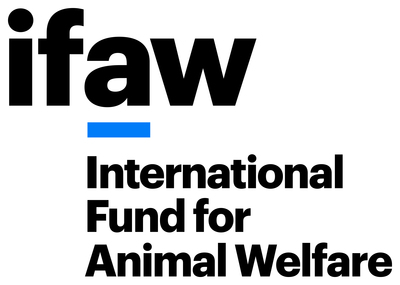Subjects: NPT, SVY, PET, ANW
IFAW Report Offers Perspective On Combatting Emergence Of Zoonotic Disease
WASHINGTON, July 28, 2020 /PRNewswire/ -- Humanity's exploitation of and improper contact with wildlife has been the primary driver behind the emergence and proliferation of zoonotic diseases in the modern era. Such is the premise behind a newly released report by the International Fund for Animal Welfare (IFAW) entitled Beyond COVID-19: Preserving Human Health by Reinventing our Relationship with Wildlife.
Defined as diseases that originate in animals, but then spread to people either directly or via an intermediary host, zoonotic diseases are by no means a new phenomenon. In fact, up to seventy-five percent of emerging infectious diseases in humans originate in animals, and the majority of those now originate in wildlife. The proliferation of infectious diseases, including the COVID-19 pandemic, is further exacerbated by multiple factors including an unprecedented level of human interaction with wildlife, biodiversity loss, and constant ecological disruption, ultimately leading to excessive levels of animal stress.
According to Azzedine Downes, President and CEO of IFAW, "It is an unfortunate reality that human behavior, including the tendency to exploit wildlife resources, has brought us to this crisis of human health as humankind's respect for wildlife has degraded over time. This is perhaps best exemplified by the trade and trafficking of wildlife and the proliferation of often unregulated wildlife markets which cater to the demand for consumption of exotic wildlife."
As the report outlines, humanity remains fundamentally connected with the global ecosystem at large, dependent on functioning natural systems and the health of wildlife on both a local and global scale. Human activities, including wildlife trade and habitat destruction, ultimately lead to an increased incidence of outbreaks of zoonotic disease.
For example, wildlife capture and trade have evolved such that live animals and animal products are moved on industrial scales from wild habitat into human-dominated spaces, creating an 'unnatural' environment where zoonotic disease can evolve and spread.
Utilizing relevant case studies, the report illustrates how certain interventions can lead to positive health outcomes for both humans and nature. Citing examples from IFAW's ongoing work protecting wild elephant populations in southern Kenya to preserving and restoring eucalyptus ecosystems in Australia that provide critical koala habitat following annual bushfires, IFAW is working to address the current imbalance between nature and mankind. One of the fundamental pillars for ultimately restoring ecological function is combatting biodiversity loss and providing conditions which promote healthy wildlife populations.
"The importance of species diversity and ecological integrity cannot be overstated when it comes to mitigating the effects of these pandemics," said Dr. Sarah Sharp of IFAW. "Protecting biodiversity is perhaps the most effective form of preventive medicine available. As human health is closely tied to our relationship with wild animals, a loss in species diversity over time has resulted in outcomes that are immensely harmful from a biological perspective as well as a societal one."
To mitigate the chances for future pandemics which present such a recurrent threat to human health, the report goes on to offer a blueprint of key policy and regulatory recommendations which can immediately be addressed by policymakers. Some examples include:
- Protecting biodiversity and recognizing it legally as an essential component of public health;
- Implementing significant regulation and restrictions in the trade of wild animals;
- Strengthening wildlife disease surveillance and monitoring;
- Driving action and investment under a One Health, One Welfare approach, integrating both human and animal health policies into tangible actions;
- Addressing the underlying drivers of habitat destruction and wildlife trade including structural inequality and poverty;
- Coordinating a comprehensive international effort between governments to ensure a global set of key minimum requirements that minimize human and wildlife interactions; and
- Ensuring long-term commitments to areas that are rich in species biodiversity.
To view a copy of IFAW's report, Beyond COVID-19: Preserving Human Health by Reinventing our Relationship with Wildlife, please click on the following link.
Register here to participate in IFAW's upcoming virtual briefing on Thursday, July 30th at 10am EST entitled COVID-19: How we got here, and how we build a safer future.
For more information or to arrange interviews please contact:
Rodger Correa at [email protected].
About the International Fund for Animal Welfare (IFAW) ? The International Fund for Animal Welfare is a global non-profit helping animals and people thrive together. We are experts and everyday people, working across seas, oceans and in more than 40 countries around the world. We rescue, rehabilitate and release animals, and we restore and protect their natural habitats. The problems we're up against are urgent and complicated. To solve them, we match fresh thinking with bold action. We partner with local communities, governments, non-governmental organisations and businesses. Together, we pioneer new and innovative ways to help all species flourish. See how at ifaw.org.
SOURCE International Fund for Animal Welfare
These press releases may also interest you
|
News published on and distributed by:




